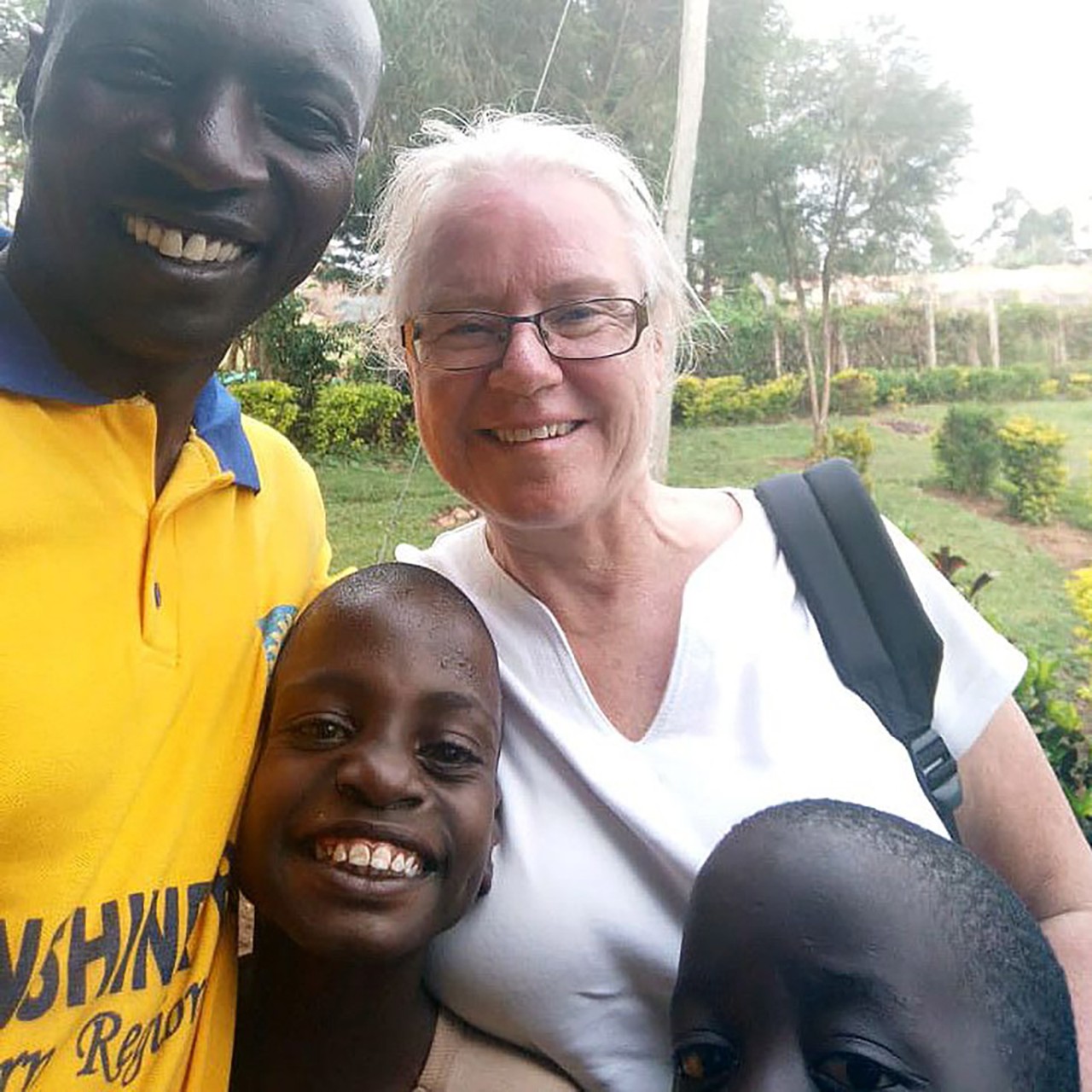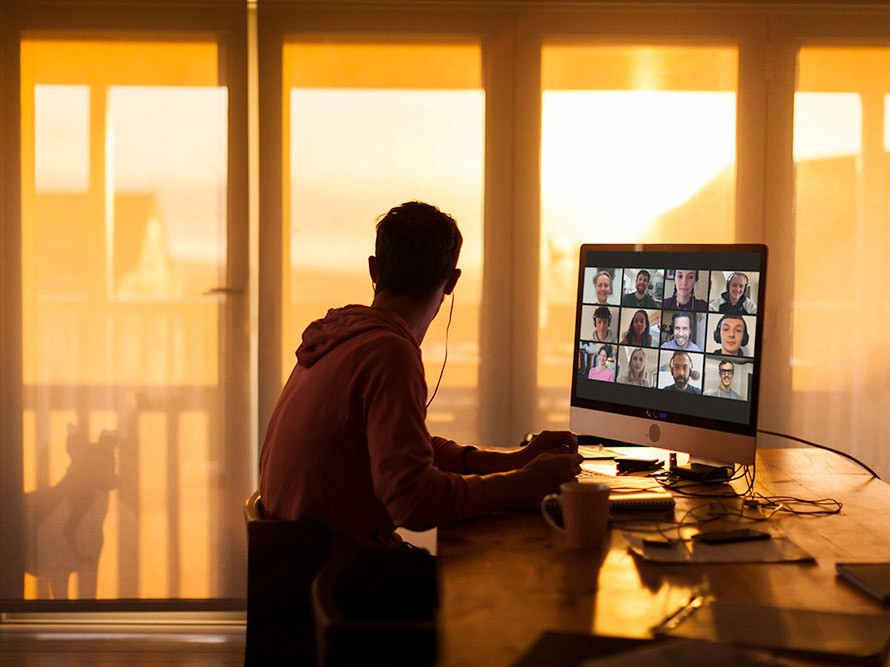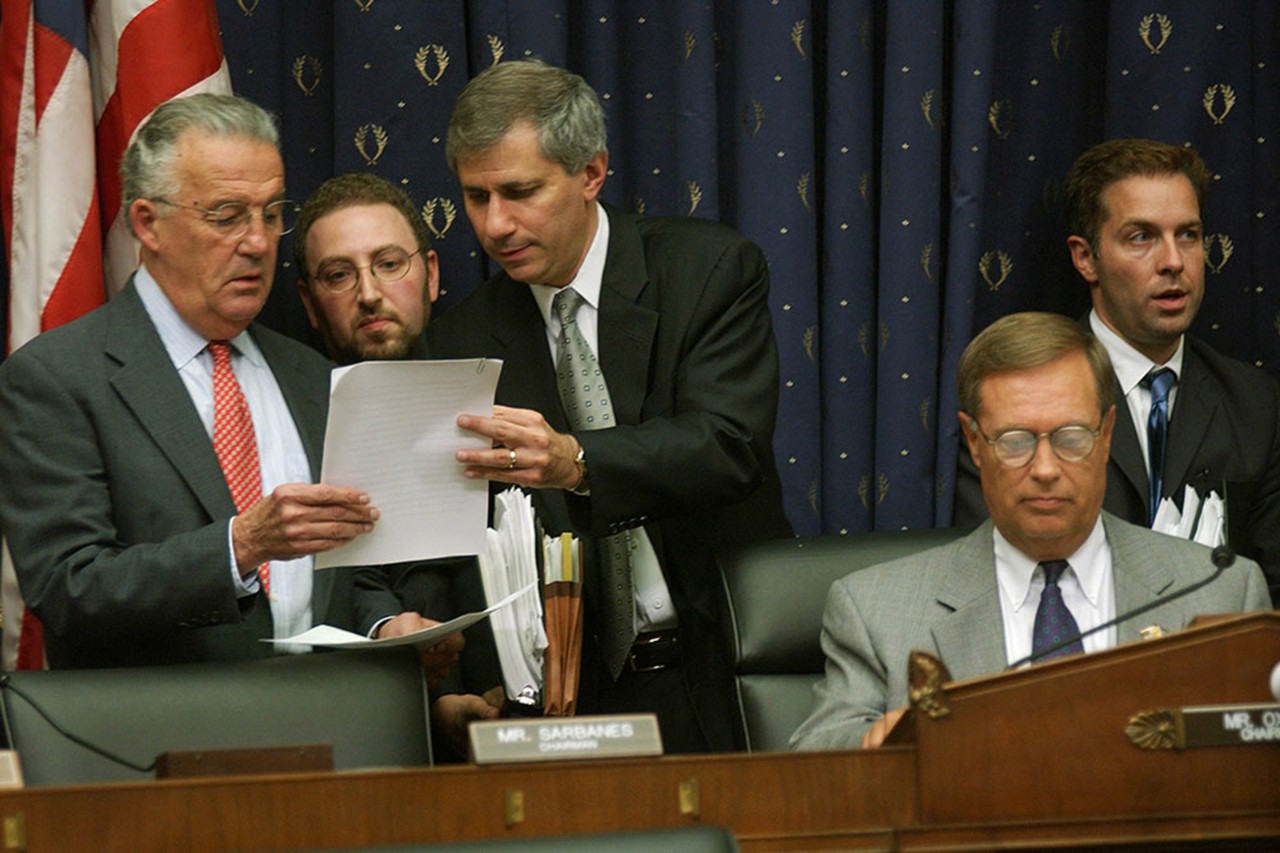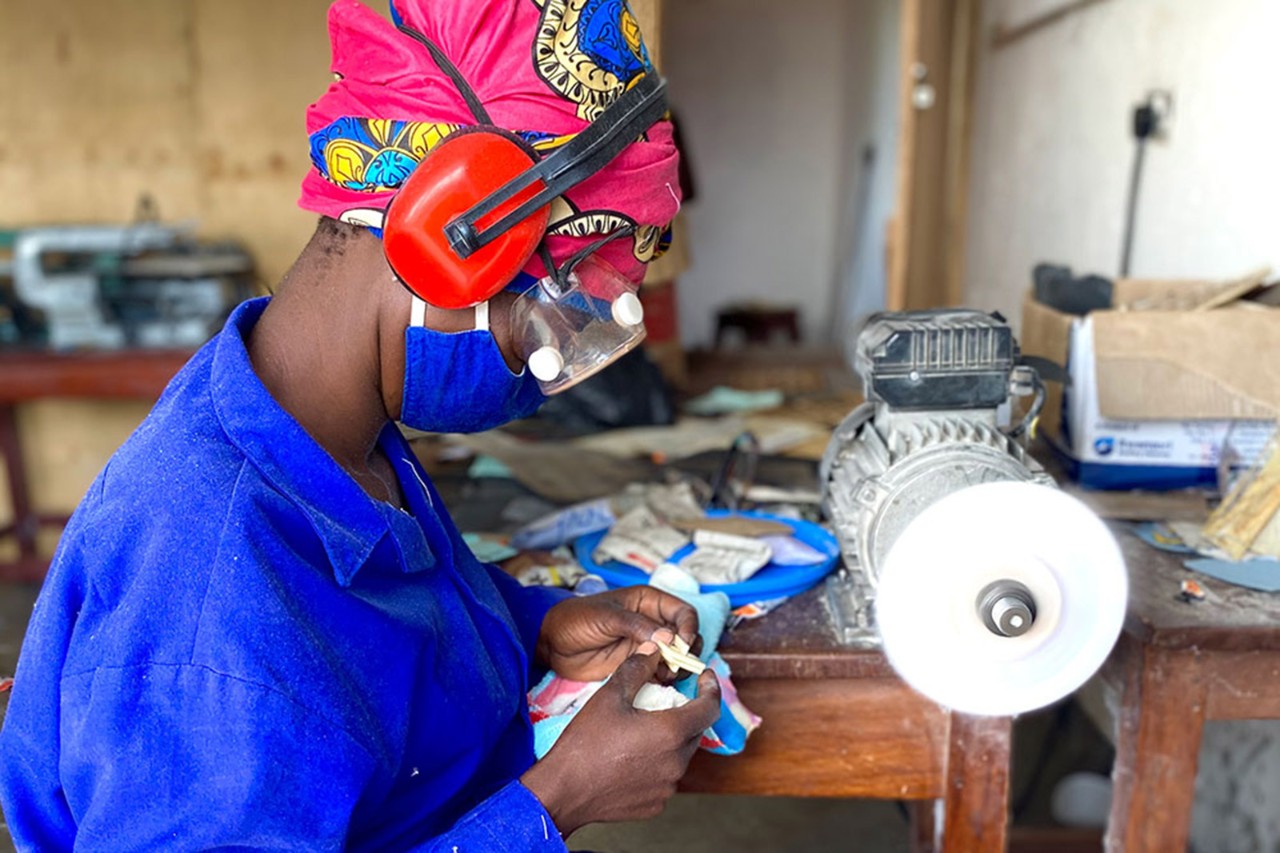
Over the course of a decade, volunteer organisation Accounting for International Development (AfID) has placed more than 1,000 accountants keen to use their skills to help others with 500 charities and non-governmental organisations (NGOs) that need their expertise. But as with so many parts of life, this successful formula was completely upended by the pandemic. With flying internationally becoming almost impossible, the implications were huge for AfID, which normally sends accountants overseas to provide hands-on financial expertise on short-term assignments.
‘The pandemic changed everything,’ says AfID’s volunteer services manager, David Busby. ‘However, our volunteers have found that, with a little patience and inventiveness, remote assignments can work. WhatsApp and online tools have done the job well, and it’s similar to the home office the volunteers are now so used to.’
‘Accountants act like an umbilical cord between the NGO and the donor’
Rewarding
One such volunteer is former EY managing partner José Julio Pisharello FCCA (pictured, right, on a previous secondment to The Baobab Home in Tanzania), who before Covid struck was about to head to Sri Lanka from his native Gibraltar to support AMMA – a zero-waste garment manufacturer where local women can learn skills, earn income and build savings so they don’t have leave home to seek work in cities.
‘I’ve always done pro bono work, so for me retirement was not going to be sitting around watching TV,’ he explains. ‘I have lots of energy to put to use.’
Pisharello admits it was frustrating not to travel but says volunteering remotely was still worthwhile. ‘I found it extremely rewarding. You quickly identify with the charity; you get a strong connection, understanding their mission and the vision they have.’
It is the attitude of the accountant that is key, he explains. ‘The communication aspect is tremendously important. You are communicating complex things to someone, often in a basic way, so you have to put your ego to one side. It’s not a question of showing how much you know; it is demonstrating how you can communicate those things in a way that people will understand.’
He used Teams to communicate with his AMMA colleagues. He says it helped to see the person and their body language, while also sharing screens.
Pisharello feels volunteers can sometimes underestimate the impact of what they do, but their role can be vital, even when performed remotely. Funding for NGOs often comes from donors who want to know where their money is going, so they need to see budgets and reports, and understand how information is being presented to them. The AfID volunteer can provide this.
‘Accountants tend to be very organised and in control of those things, understanding the big picture but also the need for the details. They act like an umbilical cord between the NGO and the donor,’ Pisharello explains.
‘I would love to be able to meet my AMMA colleagues in the future,’ he adds. ‘But the sheer enjoyment and satisfaction you feel when you’ve been able to use your skills to support people in need – I don’t think there’s anything more rewarding from a professional perspective.’
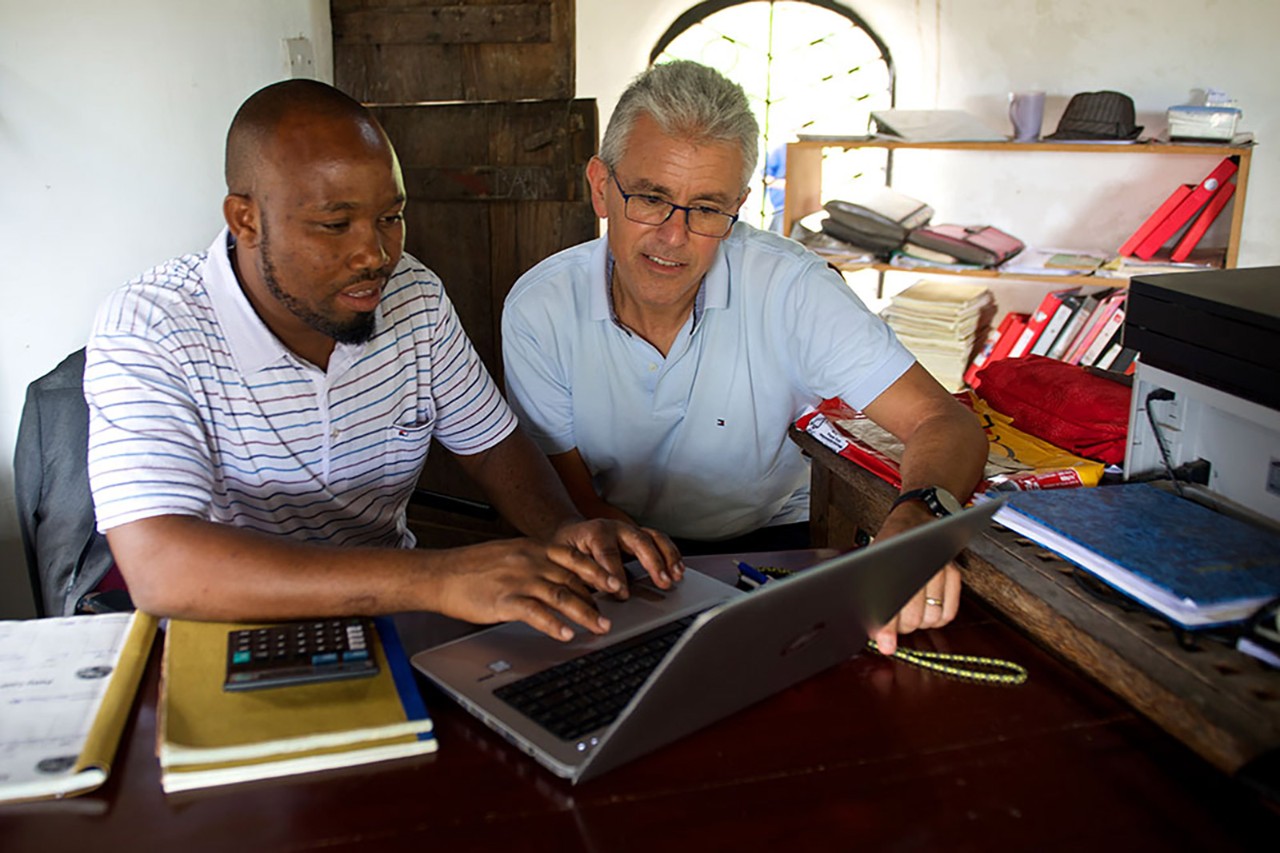
Just as the future of the office is under discussion, a new approach to volunteering may evolve
More information
During the course of the pandemic, AfID has placed 40 volunteers remotely, but it is always looking for more accountants to support particular projects. Until the Covid crisis has passed, this will probably mean via a screen.
Visit AfID’s website if you are interested in getting involved.
Virtually in Uganda
Monica Liljeroth FCCA, (pictured, right, on a previous secondment to Kenya), a Swede working in the UK, had previously volunteered abroad for AfID. Her latest contribution was carried out remotely for a charity in Uganda.
‘Tribe + Glory is there to empower women by giving them a job and income while providing training to run their own business,’ Liljeroth says. ‘Part of their earnings are set aside in a savings account and given to them on “graduation” to act as startup capital for their business.’
The first thing Liljeroth did was to send an email all about herself to those she’d be working with and encouraged them to do the same. ‘This meant that once we had our first conversation, it felt like we already knew each other. You break down barriers.’
Some of the challenges of remote working soon became apparent. ‘The original task was to assist them with building a stock sheet in Excel, Liljeroth explains. ‘But from a distance it was difficult to find out the actual process involved, so in the end we focused on building a management report, and helped the manager perform a monthly stocktake.’ It was arduous, though, with work being sent back and forth via WhatsApp.
While Tribe + Glory’s Phiona Naigulu admits that being onsite helps, she says much was achieved remotely, and despite the thousands of miles between them, she is sure of the value Liljeroth provided. ‘Our relationship has been so helpful,’ Naigulu says. ‘I can always rely on her for accounting advice and help. I value this so much and don’t take it lightly.’
Future of volunteering
Just as the future of the office is under discussion as working from home has become normalised, a new approach to volunteering may evolve.
‘Volunteering remotely is simply more accessible to more people,’ Busby points out. ‘We have many remote volunteers whose personal circumstances just won’t accommodate even a short overseas assignment. We have others who have a keen desire to give back but for whom the prospect of long-distance travel and living in a different environment doesn’t appeal. Offering remote support gives them the best of both worlds.’
He admits that, for others, missing out on the ‘full immersive experience’ is a disappointment, as they will never get to discover the sounds, smells and sights of a distant and probably rarely visited part of the world over a screen. However, a mixed offering of remote work and placements may well be the future for AfID.
